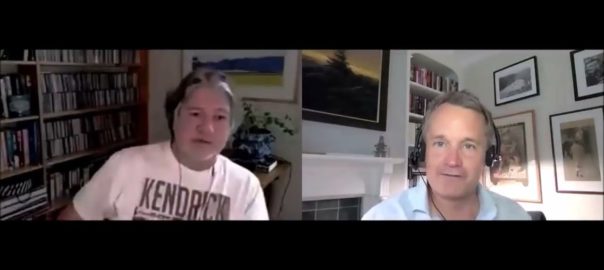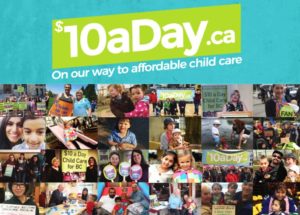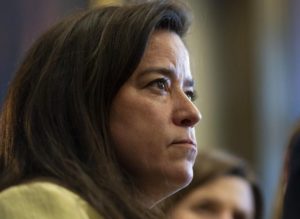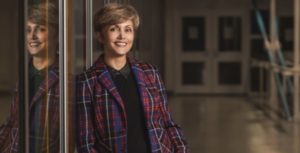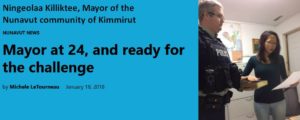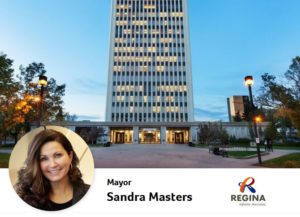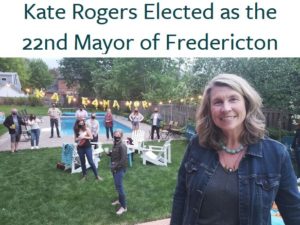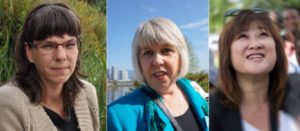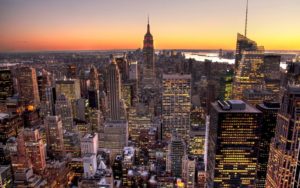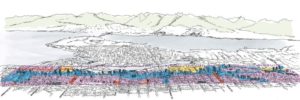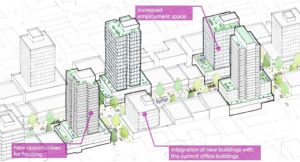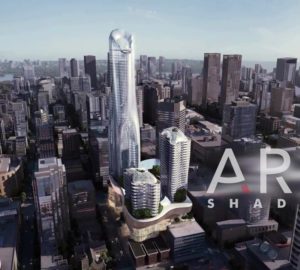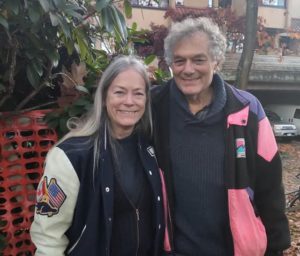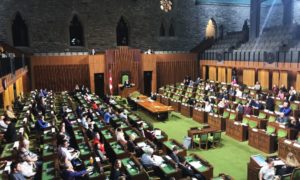 The ‘new’ House of Commons is located in what used to be the outdoor courtyard of the West Block on Parliament Hill, while the decade-long renovation of the Centre Block Commons building takes place
The ‘new’ House of Commons is located in what used to be the outdoor courtyard of the West Block on Parliament Hill, while the decade-long renovation of the Centre Block Commons building takes place
The 44th session of Canada’s Parliament officially commences today, followed by a Speech from the Throne on Tuesday at 9 a.m. PST, to be read by Governor General Mary Simon, who will lay out Prime Minister Justin Trudeau’s key priorities for his minority Liberal government.
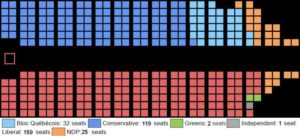 From the last, pre-election, Parliament to this, the Liberals gained 5 seats, the Conservatives lost 2 seats, the Greens lost 1 seat, there’s now one independent, and the Bloc Québécois stand pat at 32 seats
From the last, pre-election, Parliament to this, the Liberals gained 5 seats, the Conservatives lost 2 seats, the Greens lost 1 seat, there’s now one independent, and the Bloc Québécois stand pat at 32 seats
The clock is ticking on the Liberal promise to introduce a host of bills — including the introduction or reintroduction of at least eight bills — within the first 100 days of their new mandate, and the year-end session of Parliament.
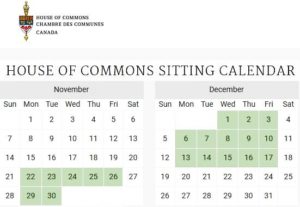
The government will sit for only 24 days to get things done in the Commons before the clock runs out on Feb. 3 — with the first two days essentially lost since they’ll be devoted to electing a Speaker, and delivering a throne speech..
The Commons is scheduled to sit for four weeks before breaking for the holiday season on December 17th. MPs won’t return to Ottawa until January 31st.
If the Liberals intend to keep their promises for the first 100 days — and they insist they do — that spells a crammed legislative agenda for the few weeks the House of Commons will be sitting before the new year.
“We have a very aggressive agenda to get to in the coming weeks and that’s what we’re focused on,” government House leader Mark Holland said last week following the Liberals’ first post-election caucus meeting.
Here’s what’s on the government agenda in the next 24 sitting days …
-
- Implement last month’s announcement on more targeted emergency aid benefits for individuals & sectors hardest hit by the COVID-19 pandemic;
- Pass a bill to impose criminal sanctions on anyone who blocks access to vaccine clinics, hospitals, testing centres and abortion clinics, or anyone who seeks to intimidate or harass health care workers, keeping a promise made by Trudeau as anti-vaccination protests ramped up during the recent, late summer election campaign;
- An important bill, with NDP support, would provide 10 days of paid sick leave for federally regulated workers, a measure triggered by the pandemic;
- A bill will be re-introduced to ban the traumatizing practice of forcing a person to undergo “conversion therapy” aimed at altering their sexual orientation or gender identity. Although Conservatives spun out debate on the ban last time and more than half of the Tory caucus voting against the initiative, banning conversion therapy is strongly supported by all other parties;
- Combat online hate, including hate speech, terrorist content, incitement to violence, child sexual abuse and non-consensual distribution of intimate images. New legislation will make social media platforms accountable for the content they host;
- Reform the criminal justice system to address the disproportionate incarceration of Black and Indigenous people: the elimination of mandatory minimum sentences for less serious crimes and greater use of conditional sentences, such as house arrest, counselling or treatment, for people who do not pose a threat to public safety;
- Safeguard Canada’s critical infrastructure, including 5G networks, to preserve the integrity and security of national telecommunications systems.
The platform also commits the government to a host of other non-legislative tasks within 100 days, including appointing a new federal housing advocate, holding a summit on restarting cultural industries, and working with provinces and territories to create a national paid sick leave plan.

And, of course, completing the task of bringing all provinces and territories on board for the government’s much needed, and long overdue economic, feminist and family equity issue — $10-a-day national child care.
More tomorrow on the 44th session of the Canadian Parliament.
